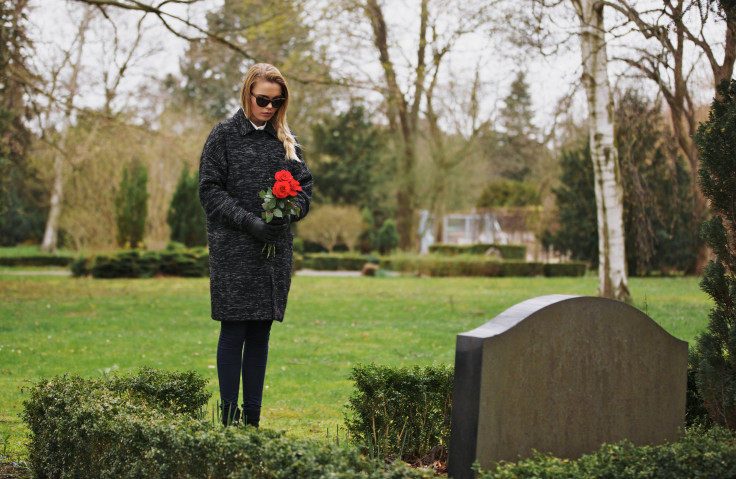Good Grief: How To Best Cope With The Death Of A Loved One

It’s a natural part of life, yet death can still often leave us feeling confused, shocked, and deeply saddened. We all go through it at some point or another, and everyone handles grief differently — some falling into depression, and others remaining buoyant — but it is possible to get past it, according to research.
For thousands of years, religion served as an emotional outlet for people who were grieving. But in the modern age, as religion became less and less important, people turned to new belief systems. One was spearheaded by Elisabeth Kübler-Ross, a psychiatrist who came up with the five stages of grief (denial, anger, bargaining, depression, and acceptance). According to Kübler-Ross, these 5 stages could define any emotional state following loss: whether it was losing a sports game, losing a child, or getting dumped. As grief counselors and group therapy sessions stepped up to take on the role of helping people cope with loss, these 5 stages became quite popular in defining the vast, dark, and isolated feelings that sweep over people when they grieve.
However, recent research has debunked many of these myths. For one, we don’t necessarily grieve in stages; a 2007 study from Yale University found that most people accepted their loved ones were gone from the beginning, and they were more likely to feel a longing or yearning for them rather than anger and depression. In addition, the notion that we must express our pain frequently to others — as a form of catharsis — doesn’t necessarily help eithe. In fact, many studies have shown that expressing and reliving negative emotions and traumatic events actually causes more depression and anxiety than people who don’t express themselves.
Time
So what does help us cope? First and foremost, though it’s a cliche, a decent amount of time must pass for us to readjust to the loss. While some research has cited 1-6 months as enough time to feel better about a loss, it’s likely going to take much longer before the chaos calms down. But time does weaken the bonds of grief.
Social Support
Having social support, especially after a death, is extremely important: having friends and family around to distract you, mourn with you, and help you in reassembling a sense of order and comfort in your life can be valuable. Plenty of research has shown that widows and widowers benefited from having social support from family and friends — but interestingly, they also benefited greatly from giving and helping others themselves.
Rituals
While religious and spiritual rituals are looked down upon in the modern age, ritual is a deeply human routine that we do without even realizing it. One study conducted by researchers at Harvard examined how little rituals — like a widow washing her deceased husband’s car every week, a widower visiting his wife’s grave every day, or a man doing the household chores for 15 years after his wife’s death — helped people cope with loss. They found that people who performed rituals that conveyed respect towards their loved one actually dealt better with grief and sadness than people who didn’t. Researchers hypothesize that it has something to do with humans’ desires to restore order in the midst of chaos and a world turned upside down; having control over rituals, and paying dues to the person we lost, helps combat the lack of control often felt during grief.
Natural Resilience
Research has begun to show that humans have a natural resilience that helps them deal completely on their own, without any formula to follow.
“Many people are exposed to loss or potentially traumatic events at some point in their lives, and yet they continue to have positive emotional experiences and show only minor and transient disruptions in their ability to function,” George Bonanno of Columbia University writes in a 2004 study. “Unfortunately, because much of psychology’s knowledge about how adults cope with loss or trauma has come from individuals who sought treatment or exhibited great distress, loss and trauma theorists have often viewed this type of resilience as either rare or pathological.”
Bonanno goes on to state that the study “challenges these assumptions,” and that “resilience represents a distinct trajectory from the process of recovery, that resilience in the face of loss or potential trauma is more common than is often believed, and that there are multiple and sometimes unexpected pathways to resilience.”
Healthy Habits
Bonanno, who has been studying grief for years, has also discovered that people who smile, laugh, and convey positive emotions in the midst of their grieving seem to adjust better over time — despite belief that positivity might mean repressing and denying sadness. Focusing on healthy habits — such as self-care, relaxation, giving yourself time to cry and grieve, exercising, spending time with others, and even laughing when you can — can inch the process along and help you remain resilient and buoyant.
Published by Medicaldaily.com



























